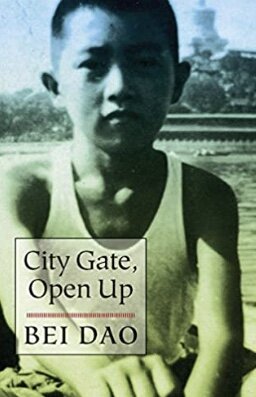The Road to Sleeping Dragon by Michael Meyer (Bloomsbury Publishing)
What booksellers categorize as travel literature comes in two different sorts of books: the ones written by people on the move and the ones who go to another country and stay put. Within that second category are three different sorts of writers--the poetic, idyllic ones, the ones who become instant experts, and the ones who realize that their new home needs to be earned, paid for with mistakes and mishaps, many of them comic.
Michael Meyer understands that from the outset when the Peace Corps sends him to teach at a small college in a Sichuan town for two years. Here he encounters students with English names that are rarely sported by native English speakers, girls named Rambo, Dinger, and Chinatown, boys who call themselves Carnegie and Wiseman. Since Meyer has been given the Chinese name of Heroic Easten Peach Blossom, he’s in no position to laugh. He knows from experience that this sort of mirth stings. While on an ill-fated solo bus ride that concludes his two-month training period, one that ends in bloodshed and a first-hand look at rural Chinese police crime deterrance, he learns to steel himself for the merriment that comes from bearing a name more commonly given to girls.
Attacked by food poisoning, he goes to a doctor who hands him a prescription for watermelon and Pepsi. A winter cold is medicated with Coca-Cola boiled with sliced fresh ginger. It takes three weeks for letters to reach the U.S. and in the pre-internet days of 1995, posted correspondence is an essential lifeline. His advisor tells him to “teach the Beatles,” and later in his academic career he’s given a course simply called Movies.
“The Peace Corps attracts curious people who are comfortable being alone--one reason, perhaps it had incubated so many writers, “ Meyer speculates. He finds that what Aldous Huxley called “the reducing valve” that modulates and pigeonholes sensory impressions doesn’t operate in his corner of Sichuan, where everything is fresh and new, never experienced before. “I’m hyperaware,” he writes to his mother, “but also exhausted.”
At the end of his two-year stint, he’s grown accustomed to the mild electric shocks provided by his morning shower, has become a local basketball star, and is no longer greeted by passersby with faintly pejorative shouts of “Laowai.” Reluctant to leave China, he applies for a job in a Beijing international school, where his Sichuan dialect and his habit of an afternoon break for three hours immediately mark him as a country bumpkin.
No longer restricted by the Peace Corps’ ban on dating local girls, Meyer falls in love with a co-worker. Lily is smart, ambitious, and fiercely Chinese. When Meyer greets her dream of studying in the West by questioning whether she would ever want to return home, she almost breaks up with him. Instead when the school’s winter break arrives, she invites him to spend Christmas at her family’s home in Manchuria. Meyer walks into the house and is greeted with a fully-trimmed Christmas tree, wrapped presents for him resting beneath it. “You are home, “ his future father-in-law tells him.
Lily’s acceptance at San Francisco State begins the couple’s long period of separation. Meyer becomes a travel journalist and the author of The Last Days of Old Beijing, his account of living and teaching in an old Beijing neighborhood with the lack of of personal privacy that comes from using a communal toilet. When the Olympics are scheduled to happen in Beijing, he’s asked by a local police officer to teach him “English vulgarities so I’ll know when a foreigner is cursing me.” Official police courses teach dialogues like “Dissuading Foreigners from Excessive Drinking” along with the indispensable phrase “Don’t pretend to be innocent.”
Even though his Chinese work permit proclaims that he’s a “foreign expert,” Meyer never lapses into the role of an omniscient Old China Hand. He keeps his sense of wonder and mercifully never loses his sense of humor. His love for his other home in the world is contagious; this book should be required reading for every foreigner who plans to visit, work, or live in China.~Janet Brown








